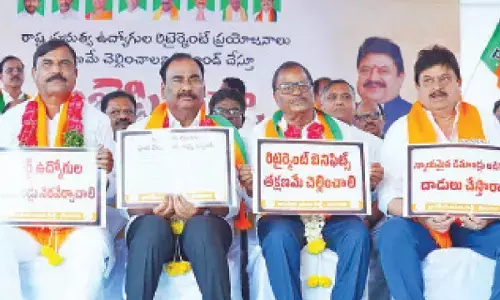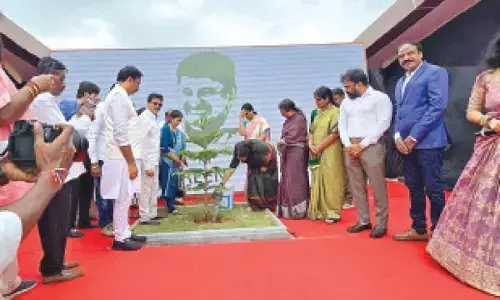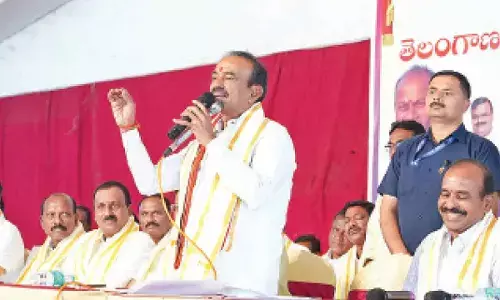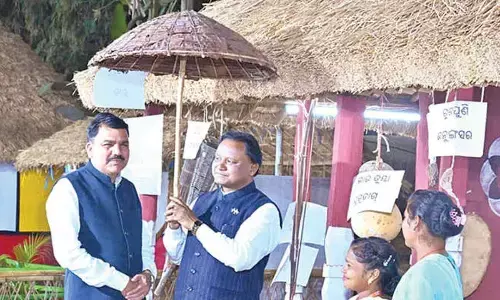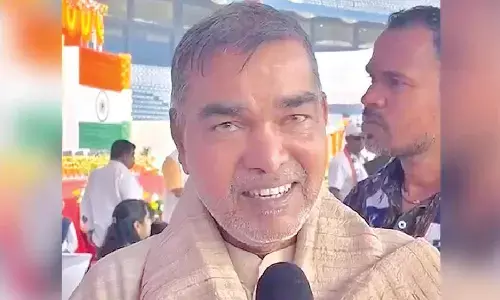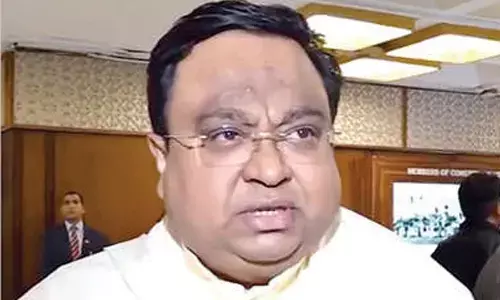MyVoice: Views of our readers 7th December 2020

MyVoice: Views of our readers 9th January 2021
MyVoice: Views of our readers 7th December 2020
Attempts to distort history condemnable
It is ridiculous to see the attempts of Hindu fundamentalists trying to portray B R Ambedkar as a Hindu supporter. Ever since the NDA came to power in 2014, many attempts were made to project Ambedkar as a passionate supporter of Hindutva ideology. There are many references that make the fictional narrative of camaraderie between Ambedkar and RSS ineffective and historically weak. The newspapers published by Ambedkar foregrounds a simple fact, that Ambedkar never envisaged a possibility of allying with Hindu nationalist politics.
On the contrary, his writings clearly manifested his apprehensions to the idea of Hindu Rashtra. The political stances taken by his organisations and newspapers on Hindutva further encapsulate the essence of his politics. That could be one of the reasons why he termed the RSS, along with the Akali Dal, a dangerous organisation in 1946. Ambedkar's often quoted remarks on Hindu communal politics, such as his statement on the 'menace' of 'Hindu Raj', from his classic work, Pakistan or Partition of India are sufficient to comprehend his political position on Hindutva.
In addition, a party manifesto published by Scheduled Caste Federation (SCF) in 1951, authored by Ambedkar himself, is another testimony of his categorical cynicism against the RSS. The manifesto clearly argued, "The Scheduled Caste Federation will not have any alliance with any reactionary party such as Hindu Mahasabha or the RSS". Fabricated elicitations of Ambedkar's link with RSS is a recurring phenomenon because Ambedkar had seldom referred to the RSS in his writings. In fact, unlike his intellectual engagements with Gandhi, Ambedkar had little dialogue with the RSS.
The organisation was not even a significant force during Ambedkar's lifetime. Even in the 1940s, when the activities of RSS were discussed at a national level, it had to struggle hard to attract significant membership from western India, as compared to the north. Non-Brahmin and Dalit movements in western India were deeply sceptical of the RSS and it was not able to flourish there in its early years. It was a fringe force then, with a limited mass appeal. It was in western India Ambedkar's movement had the strongest foothold.
C Jyothi, Hyderabad
One can't write off farmers' protests
The farmers' protest near New Delhi is a major political event challenging the Narendra Modi government. The participation is widespread, and it is growing by the day. That farmers have been unhappy with their economic condition was evident from the number of marches to Delhi during the past two years. This time the protest is about three bills passed in Parliament in September 2020. Before coming to the reasons why the farmers are protesting, it is important to mention two facts surrounding these bills and the ensuing protests that form the political backdrop.
The first is that these bills were virtually bulldozed in the Rajya Sabha, passed by voice vote despite a demand for a division. This is against the rules. Those members who protested were suspended. The second is the way in which the government reacted to the farmers' march to Delhi. The farmers were met with lathis, tear gas and water cannons; they were dubbed 'anti-nationals', 'Khalistanis', agents of Opposition parties and middlemen who were not 'real' farmers.
A large part of the media either did not highlight the event or added even more demeaning and false epithets to those articulated by the ministers of the Central government and the leaders of the Bharatiya Janata Party. Both these incidents represent the most recent instances of the Centre riding roughshod over democratic institutions and practices. But unlike what was done with the Rajya Sabha members, 'suspending' protesting farmers is not an option that the government has.
The farmers' anxieties emerge from the three bills that were passed: the Farmers' Produce Trade and Commerce (Promotion and Facilitation) Act, 2020, the Farmers (Empowerment and Protection) Agreement on Price Assurance and Farm Services Act, 2020, and the Essential Commodities (Amendment) Act, 2020. Certain provisions made in these legislations have led the farmers to believe that their incomes will come under greater uncertainty and, ultimately, get reduced.
Umamaheswar Rao Ch, Guntur








